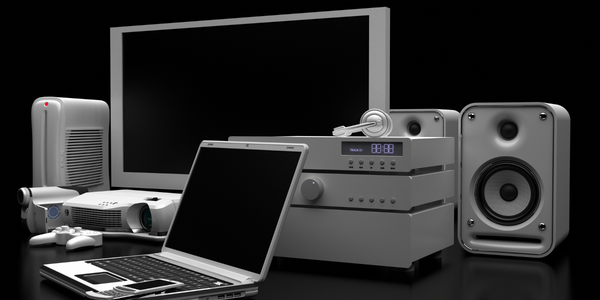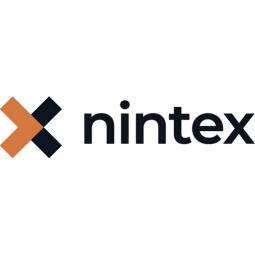下载PDF
Jacksonville Jaguars Enhance CRM with eSignature for Efficient Season Ticket Renewals
适用行业
- 电子产品
- 造纸
适用功能
- 销售与市场营销
用例
- 供应链可见性(SCV)
- 时间敏感网络
服务
- 系统集成
挑战
职业橄榄球队杰克逊维尔美洲虎队在季票续签过程中面临挑战。每年,销售团队都会向以前的持有者发送季票协议,需要一周或更长时间才能签署。这种延迟阻碍了球队与潜在季票持有者快速接触的能力。美洲虎队寻求一种解决方案来加快这一过程,使他们能够立即了解选择不续约的球迷。该解决方案需要根据 CRM 系统中的客户信息提供按需发送功能。该团队开始寻求一种电子签名解决方案,通过无纸化流程更快地执行季票协议,从而提高内部效率。该解决方案必须与现有的 Microsoft Dynamics CRM 无缝集成,并允许一次批量发送和管理数千个协议。
关于客户
杰克逊维尔美洲虎队是一支位于佛罗里达州的职业橄榄球队,也是美国橄榄球联盟 (NFL) 的美国橄榄球联盟 (AFC) 的成员。该队于1995年完成联赛扩军,此后赢得了两次分区冠军。美洲虎队代表美国第 11 大城市佛罗里达州杰克逊维尔,拥有一批支持主场比赛的球迷,主场比赛的观众总数为 1,066,627 名。每年,美洲虎销售团队都会向之前的季票持有者发送季票协议,以巩固即将到来的赛季的新协议。
解决方案
在评估了多个供应商和解决方案后,捷豹队于 2014 年 6 月采用了 Nintex AssureSign。该解决方案满足了所有销售团队的独特标准,并且易于实施和使用。 Nintex AssureSign 复杂的 API 使捷豹队销售团队能够接触到成千上万的球迷,包括那些可能不是之前季票持有者的球迷。从纸质季票协议过渡到电子签名季票协议使销售团队能够在 15-20 分钟的时间内管理已完成的门票豁免。他们还可以更好地了解分散的大量协议,使他们能够轻松跟踪和监控未签署的协议。美洲虎队还计划将电子签名效率扩展到比赛日球迷体验中,在比赛前和比赛期间的互动活动中用电子签名弃权书取代纸质弃权书。
运营影响
数量效益
相关案例.

Case Study
Remote Temperature Monitoring of Perishable Goods Saves Money
RMONI was facing temperature monitoring challenges in a cold chain business. A cold chain must be established and maintained to ensure goods have been properly refrigerated during every step of the process, making temperature monitoring a critical business function. Manual registration practice can be very costly, labor intensive and prone to mistakes.

Case Study
Wireless Improves Efficiency in Compressed Air Systems
Hollingsworth and Vose wanted to improve the efficiency of their compressed air system, lower the electricity expense component of manufacturing cost in their commodity industry, and conserve energy leading to lowered greenhouse gas emissions. Compressed air systems degrade over time and become leaky and inefficient. Hollingsworth and Vose wanted to increase the frequency of system inspections without paying the high cost of manual labor.

Case Study
Cloud Solution for Energy Management Platform-Schneider Electric
Schneider Electric required a cloud solution for its energy management platform to manage high computational operations, which were essential for catering to client requirements. As the business involves storage and analysis of huge amounts of data, the company also needed a convenient and scalable storage solution to facilitate operations efficiently.

Case Study
Leveraging the IoT to Gain a Competitive Edge in International Competition
Many large manufacturers in and outside Japan are competing for larger market share in the same space, expecting a growing demand for projectors in the areas of entertainment, which requires glamor and strong visual performance as well as digital signage that can attract people’s attention. “It is becoming more and more difficult to differentiate ourselves with stand-alone hardware products,” says Kazuyuki Kitagawa, Director of Service & Support at Panasonic AVC Networks. “In order for Panasonic to grow market share and overall business, it is essential for us to develop solutions that deliver significant added value.” Panasonic believes projection failure and quality deterioration should never happen. This is what and has driven them to make their projectors IoT-enabled. More specifically, Panasonic has developed a system that collects data from projectors, visualizes detailed operational statuses, and predicts issues and address them before failure occurs. Their projectors are embedded with a variety of sensors that measure power supply, voltage, video input/ output signals, intake/exhaust air temperatures, cooling fan operations, and light bulb operating time. These sensors have been used to make the projector more intelligent, automatically suspending operation when the temperature rises excessively, and automatically switching light bulbs. Although this was a great first step, Panasonic projectors were still not equipped with any capability to send the data over a network.







